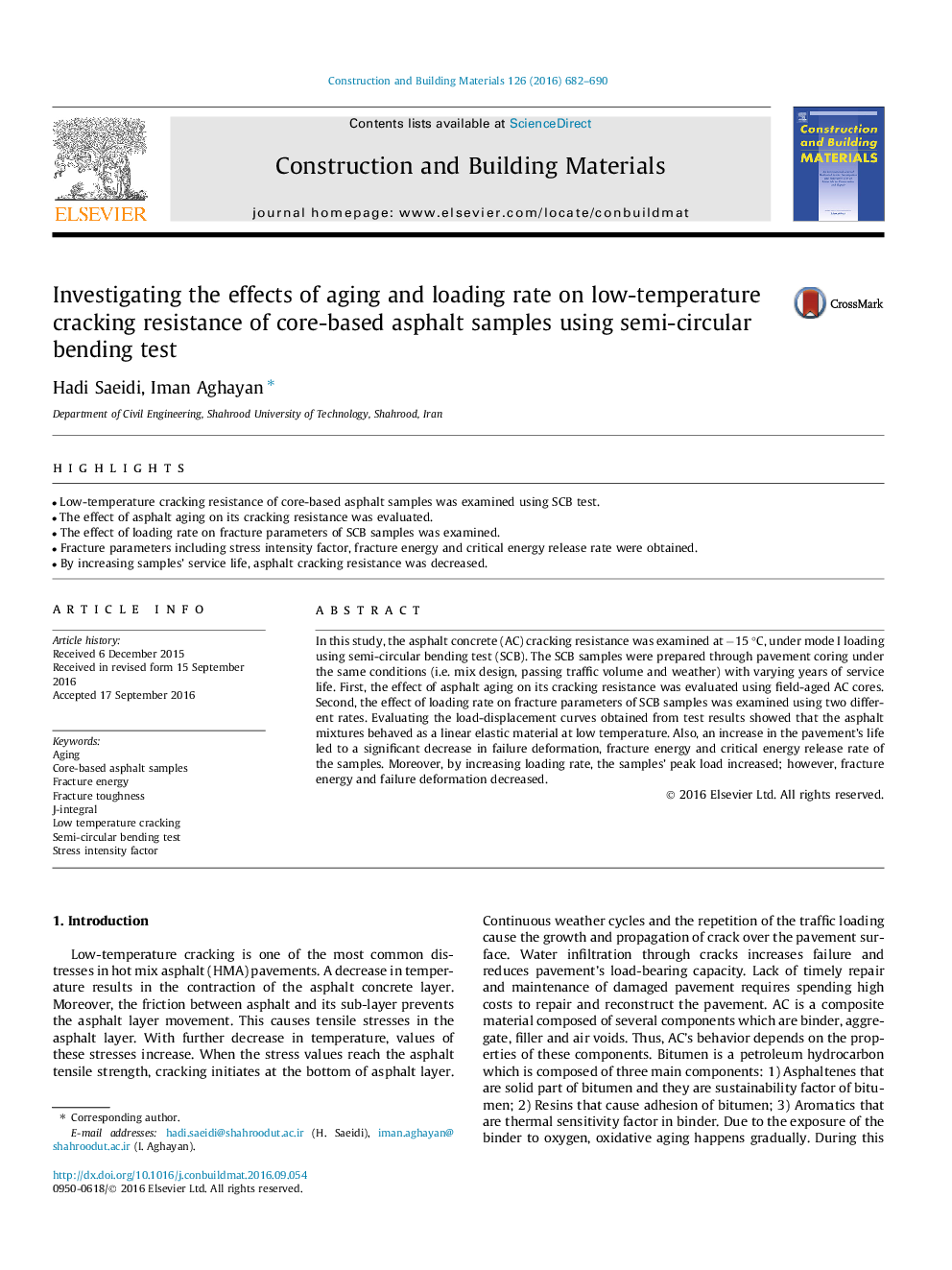| Article ID | Journal | Published Year | Pages | File Type |
|---|---|---|---|---|
| 6480952 | Construction and Building Materials | 2016 | 9 Pages |
â¢Low-temperature cracking resistance of core-based asphalt samples was examined using SCB test.â¢The effect of asphalt aging on its cracking resistance was evaluated.â¢The effect of loading rate on fracture parameters of SCB samples was examined.â¢Fracture parameters including stress intensity factor, fracture energy and critical energy release rate were obtained.â¢By increasing samples' service life, asphalt cracking resistance was decreased.
In this study, the asphalt concrete (AC) cracking resistance was examined at â15 °C, under mode I loading using semi-circular bending test (SCB). The SCB samples were prepared through pavement coring under the same conditions (i.e. mix design, passing traffic volume and weather) with varying years of service life. First, the effect of asphalt aging on its cracking resistance was evaluated using field-aged AC cores. Second, the effect of loading rate on fracture parameters of SCB samples was examined using two different rates. Evaluating the load-displacement curves obtained from test results showed that the asphalt mixtures behaved as a linear elastic material at low temperature. Also, an increase in the pavement's life led to a significant decrease in failure deformation, fracture energy and critical energy release rate of the samples. Moreover, by increasing loading rate, the samples' peak load increased; however, fracture energy and failure deformation decreased.
